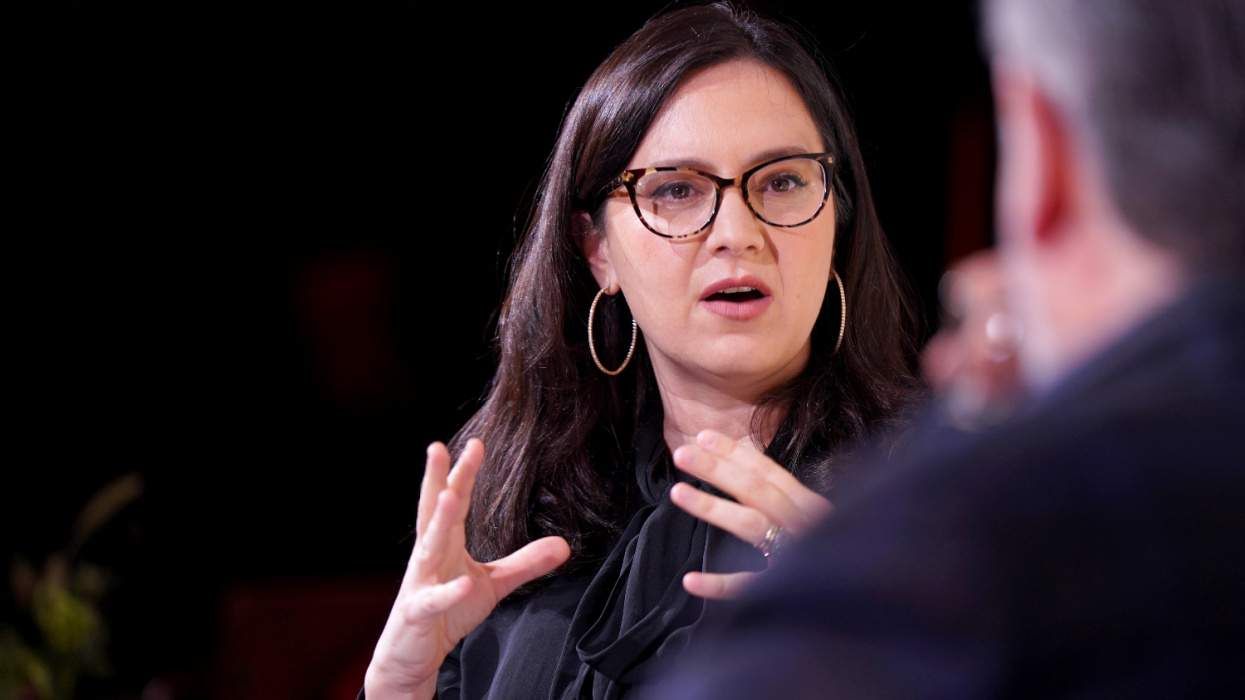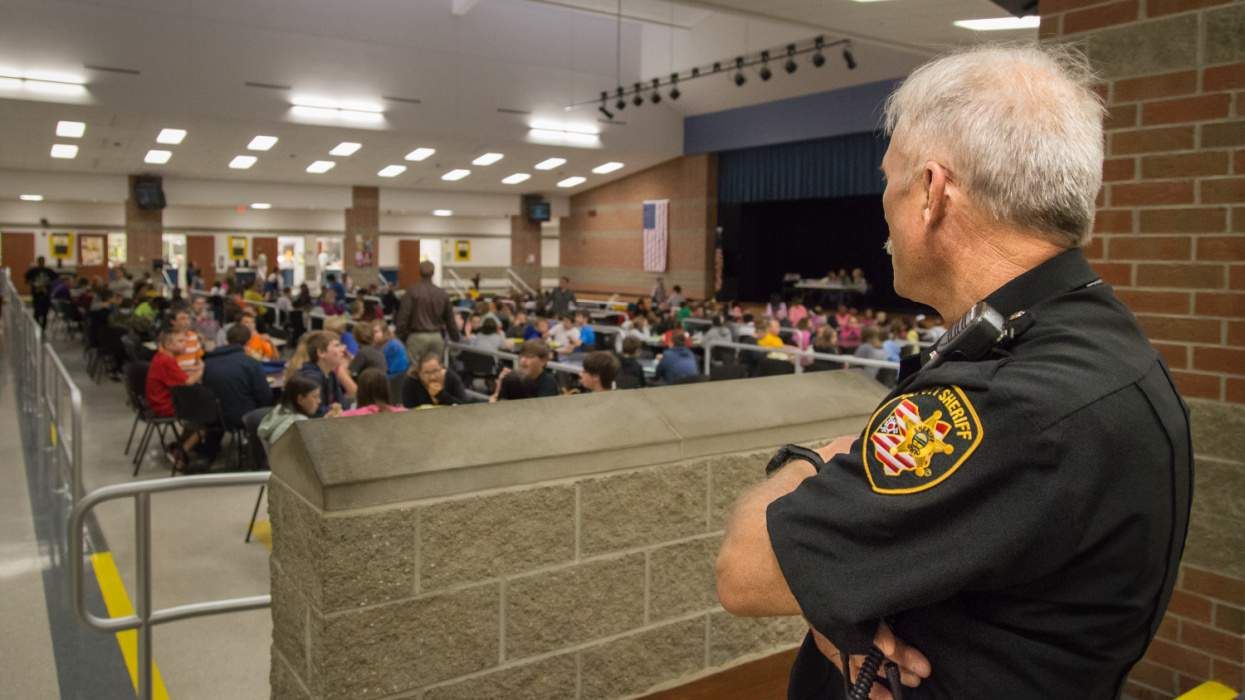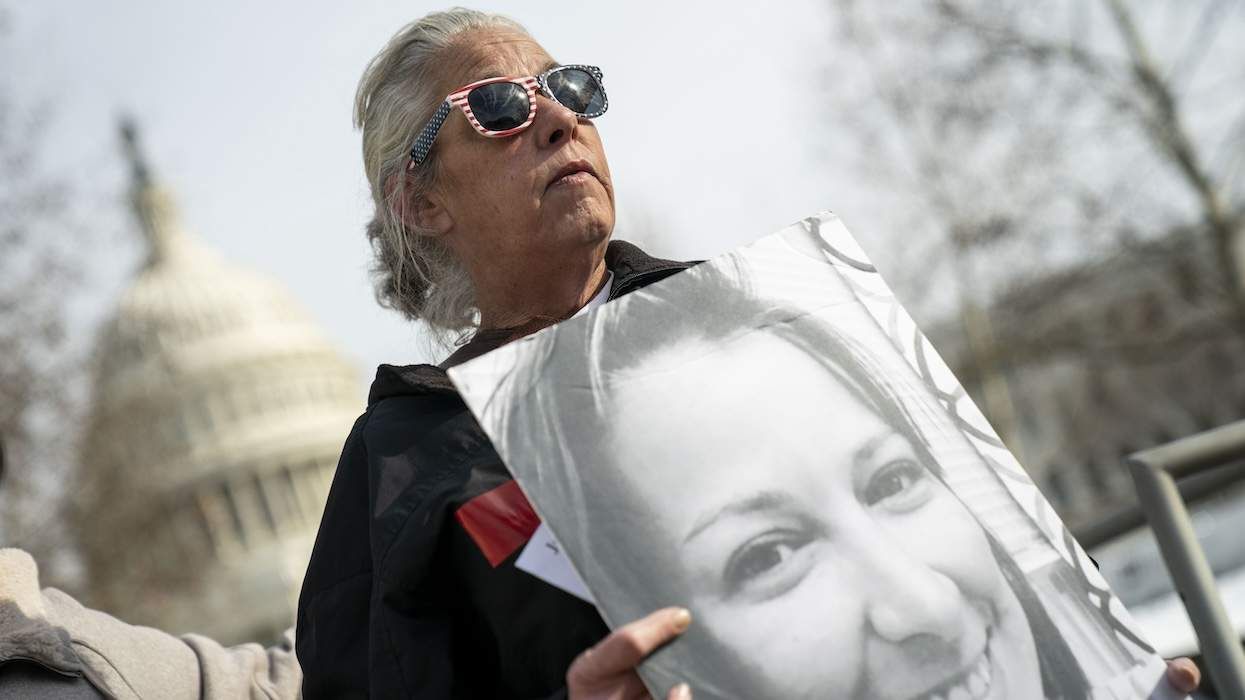LGBTQ+ Americans are poised to become one of the fastest-growing voting blocs in the nation, transforming the political landscape, according to a report released Thursday by the Human Rights Campaign and Bowling Green State University.
The report, "Equality Electorate: The Projected Growth of the LGBTQ+ Voting Bloc in Coming Years," predicts that by 2030 approximately one in seven voters will be LGBTQ+, up from the current one in 10, and the proportion will near one in five by 2040.
The vast majority of LGBTQ+ adults are registered to vote, and most vote Democratic, so they will make Democratic, or "blue," areas bluer and push "red" Republican areas into "purple," or swing territory, notes the report, which is based on new analysis of publicly available data. Without the LGBTQ+ vote, Joe Biden would likely have lost the 2020 presidential election to Donald Trump, as this vote proved key in swing states.
That election saw the largest proportion of LGBTQ+ voters since exit polls began asking about this identification in 1992. The proportion of LGBTQ+ people among the voting-eligible population was 10.8 percent in 2020, and it now stands at 11.3 percent, according to the report. It projects that will grow to 14.3% by 2030 and 17.8 percent by 2040. States where the proportion is likely to nearly double include Georgia, Texas, Ohio, and Arizona.
A major reason for the increase in LGBTQ+ identification is that people are coming out at ever-younger ages. In a 2021 Gallup poll, 20.8 percent of Generation Z adult respondents identified as a sexual and/or gender minority, as did 10.5 of millennials, compared with 4.2 percent of Generation X and only 2.6 percent of Baby Boomers. And the LGBTQ+ population has influence beyond its numbers, as straight and cisgender people who know an LGBTQ+ person are more likely to support pro-equality policies.
While LGBTQ+ voters are not a monolith, data indicates they care deeply about social justice issues. A 2022 HRC survey asked LGBTQ+ respondents which issues were the most important "when making your decision about who to vote for" and found that reproductive rights and LGBTQ+ discrimination were the two most frequently selected issues, each selected by more than eight in ten respondents. More than six in ten selected transgender rights and safety concerns (66 percent) and racial justice (65 percent).
"The LGBTQ+ voting bloc has been steadily growing and is on track to exponentially expand in the coming years, becoming one of the fastest growing voting constituencies in the country, projected to wield increasing influence in local, state, and federal elections," HRC Interim President Joni Madison said in a press release. "LGBTQ+ voters are already playing a pivotal role in elections, and in the coming years will fundamentally reshape the American electoral landscape -- especially in battleground states and swing districts that are consequential to determining control of the presidency and Congress."















